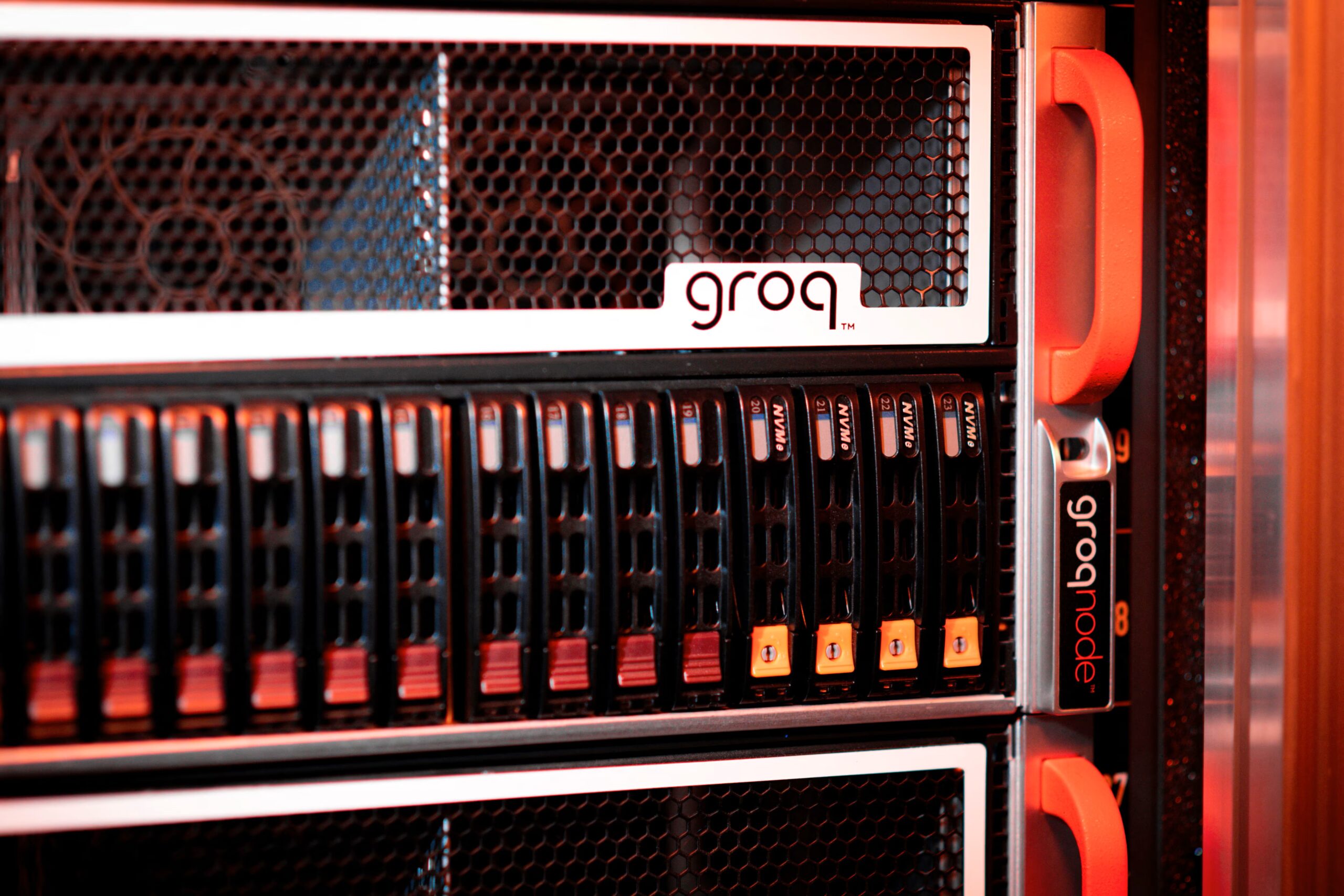Groq, a Silicon Valley chipmaker positioning itself as an alternative to Nvidia, has raised $750 million in fresh funding, pushing its valuation to $6.9 billion. The move signals growing momentum in the race to supply the hardware that powers today’s artificial intelligence systems.
The funding round, led by Disruptive and supported by major players including BlackRock and Deutsche Telekom Capital Partners, more than doubles Groq’s valuation in just over a year. The company has now secured more than $3 billion in total investment since its founding.
Unlike Nvidia, which dominates the AI market with its powerful GPUs, Groq is banking on a different approach. Its chips, called LPUs — short for “Language Processing Units” — are designed specifically for inference, the stage of AI deployment where trained models respond to real-time queries.
The firm argues that its LPUs are faster and more efficient for such workloads, offering a cheaper alternative to GPU-heavy solutions. Its products are available both through cloud services and on-premise racks, targeting companies that want flexibility in how they run AI models.
Groq has seen its developer community surge from around 356,000 last year to more than two million today. That growth reflects demand for alternatives as AI use cases expand across industries.
The company supports a wide range of open models, including those from Meta, DeepSeek, Qwen, Mistral, Google, and OpenAI — positioning itself as an accessible platform in a market often criticized for its closed ecosystems.
Challenging Nvidia’s Grip
Nvidia remains the undisputed leader in AI chips, with its GPUs forming the backbone of most large-scale AI deployments worldwide. But Groq’s rise introduces real competition, one that could potentially push down costs and diversify hardware options.
Industry observers caution, however, that scaling hardware production is a daunting challenge. Nvidia’s decades of experience in chip design, supply chain management, and developer tools give it a powerful advantage.
Why it Matters
The stakes extend beyond corporate boardrooms. More hardware competition could lower the cost of AI compute, making advanced systems accessible to smaller firms and startups — including in emerging markets where infrastructure costs remain a barrier.
At the same time, questions linger over energy consumption. While Groq claims its LPUs are more efficient, the scale of global AI deployment continues to raise environmental and sustainability concerns.
The company’s latest funding underscores investor confidence that AI infrastructure — not just software models — will drive the next wave of growth. But the road ahead is crowded with uncertainty: Can Groq deliver at scale? Will prices drop enough to loosen Nvidia’s grip?
For now, the $6.9 billion valuation gives Groq both capital and credibility. Whether that translates into long-term disruption remains to be seen, but the contest to define the future of AI hardware has clearly intensified.
Talking Points
Groq’s $6.9 billion valuation and its promise to rival Nvidia highlight how AI’s future is increasingly tied to hardware monopolies. But let’s be honest — these billion-dollar raises only underline how concentrated power remains in the hands of Silicon Valley.
Should we be celebrating competition between giants when the rest of the world, especially Africa, still struggles with basic digital infrastructure?
Groq claims its LPUs will make AI faster and cheaper, but “cheaper” in Silicon Valley doesn’t mean affordable in Lagos or Nairobi.
If computers remain this expensive, African startups will always be spectators in the AI race, dependent on Western firms to rent them “intelligence” by the hour. The promise of democratization might just be another mirage.





